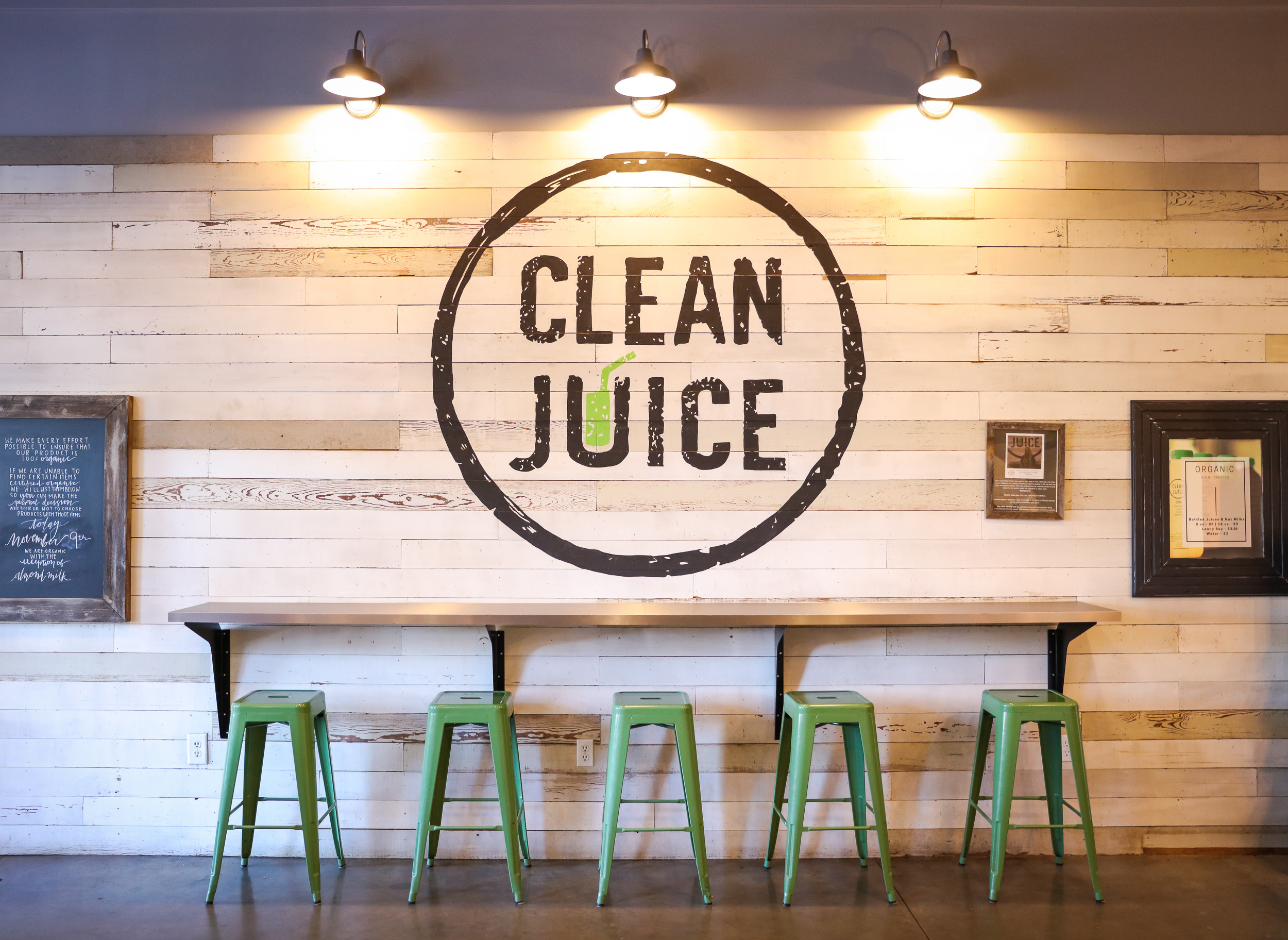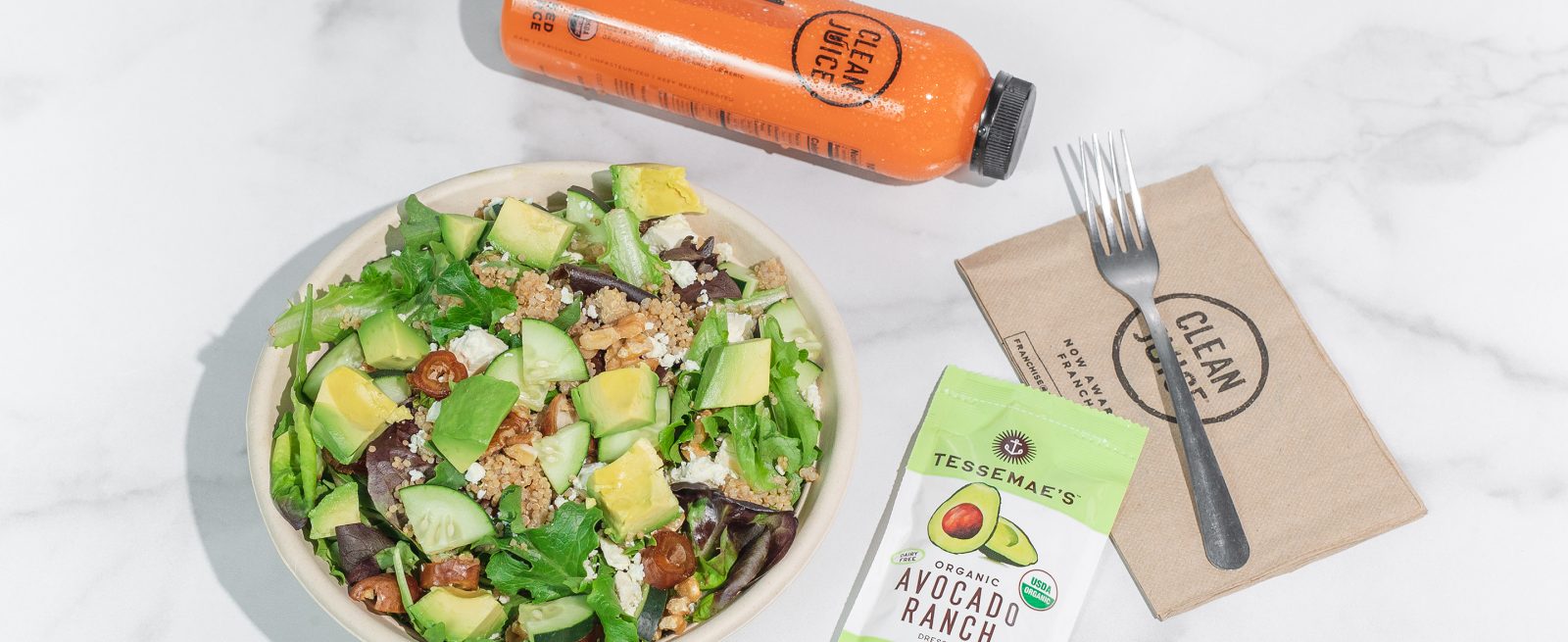COVID-19 Fuels Growth in Organic Food Options
5 Min Read By Landon Eckles
COVID-19 has indelibly changed every aspect of our lives. Its influence has created challenges, restructured social settings, and redefined meanings of common words and phrases. The terms "organic" and "clean," for example, have a new, heightened relevance with consumers in a post-COVID-19 environment with their hyper-focus on strengthening immune systems and preparing bodies for any potential interaction with the virus. This has dramatically impacted the core of the food and restaurant industries, specifically healthy and organic food. And the numbers are impressive.
Eating organic is by no means a new concept brought on by the pandemic, but the shift in mindsets has thrust this niche food sector into overdrive.
As consumers seek clean products without chemicals or human-made modifications to put in their bodies, they are taking more notice of organic ingredients to boost their health and wellness. And it doesn't just stop there; they're also looking at how clean the restaurant and its employees are in delivering and preparing the product.
Consumers ask, "Can I trust this establishment, can I trust the food they are offering me, can I trust that the staff is adhering to health and safety protocols." One of the more burning questions is, "How will eating organic make me feel, and will it help me fight the virus?"
Eating organic is by no means a new concept brought on by the pandemic, but the shift in mindsets has thrust this niche food sector into overdrive. To be clear, eating organic will not kill the virus or make you immune. Still, it is well-documented that eating clean, nutrient-dense foods without foreign chemicals like preservatives or pesticides has beneficial long-term effects on the mind, body, and overall well-being. The stronger your body and immune system, the better off you are against a litany of concerning health issues.
The Organic Food Boom
Unequivocally, the organic food industry has been growing steadily over the past decade. In 2010 the organic food sector reached $5B. According to the Organic Trade Association, organic food products accounted for 90 percent of a $55B organic product industry in 2019. COVID-19 just seemed to pour fuel on those growth numbers, and 2020 is on track to exponentially surpass last year's records.
Organic produce consumption is up also up double digits. Industry reports show that in March, April, and May of 2020, organic produce trended upward as consumers adopted an inherent understanding that organic foods offer exponential health benefits. As an offset of COVID-19, consumers are focusing on food choices as a way to fight COVID-19 and other health issues associated with poor diets. What we've learned from health and infectious disease experts is that COVID-19 is more detrimental to people with underlying health issues, many of these associated with poor diets. Diabetes, morbid obesity and heart disease are few among many. The fear caused by COVID-19 has altered the mindset of many people who are now taking a more substantial, proactive approach to their health versus waiting until they get sick to eat better.

An Industry Microcosm
The Clean Juice brand is on the same growth trajectory as the organic food industry and is a demonstrative microcosm of organic food industry interest, demand, and absorption. Despite COVID-19 and the dramatic impact on the QSR/Fast Casual restaurant space, Clean Juice experienced something slightly different and more in line with what was happening in the organic food industry as a whole – a surge in interest and growth.
In the first three months of the pandemic (March, April, and May), we reported negative sales due to the uncertainty of the virus' contagion power. However, in June, our stores bounced back to double-digit same-store sales growth even amid the pandemic. I believe this was driven not only by our core customer base and reputation but by many others looking for clean, healthy food options across multiple channels, including Third Party delivery partners.
Organic Best Practices
If you are considering adding organic or looking to buy into an organic-certified concept, there are a few critical areas to consider. Note to yourself; it will be challenging at first. Sourcing organic produce and ingredients will be difficult, especially if you are seeking an all-organic concept. Though certified organic farms have increased 56 percent from 2011, this still only makes up less than one percent of total acres of American farmland, according to Pew Research Center. In the early days of Clean Juice, we did not have USDA-certified organic purchasing power established. Our staff was running to organic grocers to supplement our inventory to keep up with the demand. As Clean Juice grew and earned its USDA-certified label, we were better positioned to work with national suppliers and distributors of USDA-certified products to get the quality and quantity needed to meet demand and stay true to the Clean Juice vision.
If you are looking to buy into a franchise that focuses on USDA-certified organic, make sure the franchise offers a reliable supply chain and distribution platform so that you are not forced to fend for yourself while securing the ingredients needed for your menu. Ask the franchisor, "What is your supply chain process? Who are the vendors? Are there shortages? What contingency plans are available?" You must research and vet each touchpoint in the supply chain to ensure consistent availability and quality of the products you are offering consumers.
Getting a USDA-certified stamp of approval is not an easy process, but a significant differentiator in the restaurant industry. It is essential to understand that it is not as simple as filling out an application. It takes over a year of following and reporting on strict guidelines set forth by the USDA. Everything must be verified and reported from what ingredients you source, where you source it from, and how it is handled and stored. There is a sophisticated auditing and reporting system that must be followed with the strictest discipline. For restaurant owners wanting to add organic offerings into their menus (without the USDA validation), the process is a bit easier and a good first step. Once you can add organic, then you can decide whether you want to pursue the USDA certification.
Stay True to The Mission
Deciding to go organic – whether full throttle or as an added food offering – can be the right decision. Remember to stay the course and always stick to serving your customers in the best way possible. Your restaurant is an extension of somebody's kitchen and is responsible for family meals, birthday celebrations, and the centerpiece of many other life events. People gather around food, more specifically, the food you prepare and offer.
Keeping a clean, sanitized restaurant, even for take-out or delivery– will go a long way in staying afloat during these unprecedented times. Lastly, thinking about the mindset of your customers is always the right path to follow. With many people, if not most, looking for proactive ways to stay healthy and protect themselves from illness, offering clean, fresh, organic foods not only provides another layer of variety but demonstrates your brand's commitment to supporting healthy individuals, families, and communities.


